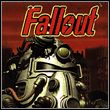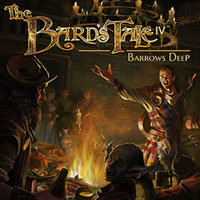"Bethesda Did A Great Job With Fallout" – Interview With Brian Fargo, Creator Of Cult RPGs
During the latest edition of Digital Dragons gaming conference that took place in Kraków, Poland, we had an opportunity to chat with Brian Fargo. The legendary developer talked about his current and future endeavors.
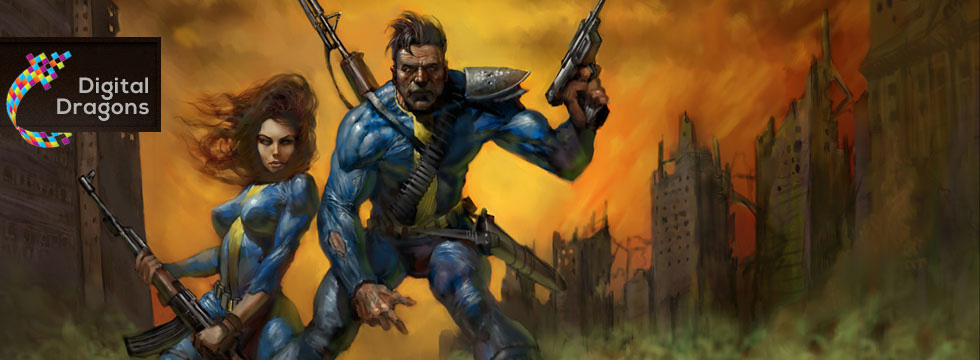
Last week we participated in another edition of Digital Dragons – the largest gaming conference in Central and Eastern Europe, which is also starting to mark its presence on the map of industry events recognized by the biggest gaming personas from all over the world. This growing popularity is connected in part with the guests invited to participate in the event – and this year the brightest star was without a doubt Brian Fargo. We decided to seize the opportunity to chat with the legendary developer, known as the founder of the now defunct Interplay and the current CEO of inXile Entertainment, whose name is also associated with franchises such as Fallout, Wasteland, and The Bard's Tale. Not only did we inquire about his current projects – such as The Bard's Tale IV and Torment: Tides of Numenera – but we also tackled other issues, such as the current situation in the industry or the developer’s ambitions and plans. Let’s see what he shared with us.
GAMEPRESSURE: Let’s talk about the past, the present and the future, beginning with the present. As we know, you’re launching a new crowdfunding campaign for The Bard’s Tale IV on June 2. Can you give us any hint as to what we can expect to see on that day? Any demo, perhaps gameplay?
Brian Fargo: Yeah, well... Have you seen the screenshot that we released a few days earlier? That’s how the game will look like.
It’s photogrammetry, right?
Yes, we are using photogrammetry but not in the scene that you saw. I went to Scotland myself. There are all these cemeteries – we scan a tombstone and it looks perfect. It has the level of detail that no human artist could ever achieve. That’s a really organic, beautiful look. To answer your question – yes, we’ll be showing some surprise stuff in the campaign. One of the important aspects of The Bard’s Tale is its connection with Scottish heritage. We’re going to have original music created with lyrics written in Gaelic [dominant Scottish language between the 10th and 13th centuries, still used in some parts of Scotland]. I hired Julie Fowlis, who is one of the top Gaelic singers in the world. She did one of the songs for the Brave soundtrack – Touch the Sky. In the original The Bard’s Tale we had a bard singing in the introduction about Skara Brae: “The song I sing | Will tell the tale | of a cold and wintery day” and so on – we had it translated into Gaelic and asked Julie to sing it. I love singing in our games. We had it in Wasteland 2, we had it in Stonekeep...
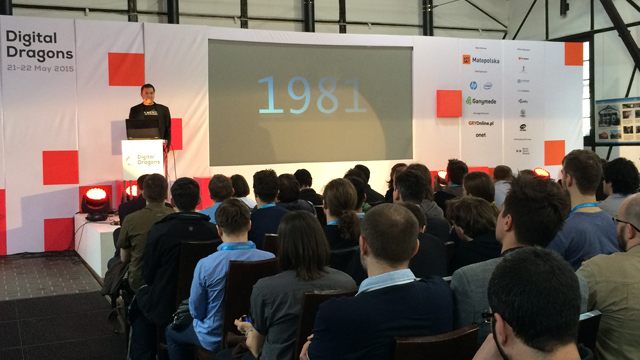
We can therefore say that The Bard’s Tale IV will have a strong Scottish feel to it?
Yes, it is very much based on the Scottish culture – and specifically the Orkney folklore. Orkney is an archipelago situated north of Scotland. Skara Brae from the original The Bard’s Tale games was also based on this region.
If you hired such a talented and renowned singer I assume you have a large budget for this game...
Well, we’re hoping to get a large budget for the game. Basically, I make games for the budget I can get. I hope we will raise something around the score of Torment: Tides of Numenera but I can’t count on that. We have all the marks checked but I tend to be skeptical and careful about everything. Besides, I don’t worry too much about attracting new people. I’m going to focus on my base audience and make them happy. However, I think when people see the visual side of the dungeon they’ll say: “They are super-ambitious and it is so full of personality.” When I’ve announced The Bard’s Tale IV on Twitter I had more retweets than ever before. Of course, there’s been some other dungeon-crawlers – like Legend of Grimrock and Might & Magic X – and they’re great but we are making something bigger.
Was the success of Legend of Grimrock and Might & Magic X an inspiration to create The Bard’s Tale IV? Or was it an earlier idea?
I wanted to do this no matter what.
And by saying that The Bard’s Tale IV will be a bigger production, do you mean its scale or something else?
The audiovisual side.
In terms of difficulty, will it be mostly for hardcore gamers – like those who enjoyed Legend of Grimrock – or a wider spectrum of players?
It will be definitely hard. There are certain things that people really love in dungeon-crawlers, like the original The Bard’s Tale. They want to move on the grid in the first person view, control the party when combat starts, explore tricky, clever and hard dungeons – do all the things that made that subgenre. As I said, visual is the only thing we want to take to the next level. First The Bard’s Tale was hard, second The Bard’s Tale was hard, third The Bard’s Tale was even harder – we are not about to stop that.
In one of your earlier interviews you said that The Bard’s Tale IV will have a turn-based combat system but fights are going to be more dynamic than in classic dungeon-crawlers. Could you elaborate on that and tell us how the combat will look like?
The original The Bard’s Tale was a classic turn-based game – you perform actions with your entire party and then it’s your foe’s turn. So it was: attack, attack, use item, defend, and then watch what happens. I don’t think these days this makes sense anymore; it’s a little too dull. Hearthstone is a good example of what we’re thinking about. You will have an opportunity to react on what is going on during your turn. That’s a big difference to me. Let’s say that your first character cast a spell which bounced back and dealt him/her some damage and you were planning to attack the enemy with your second character but when you saw what just happened you changed your mind: “No, I have to heal the caster”. You couldn’t do that with the old mechanics.
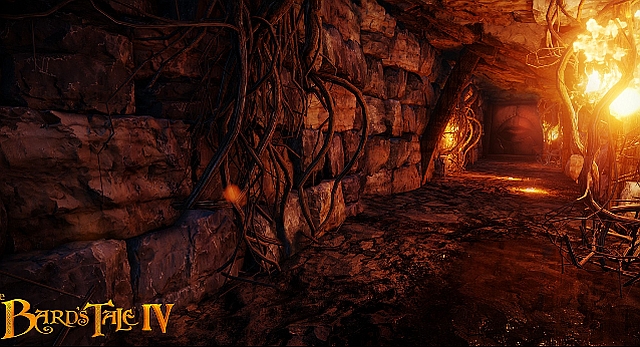
Will The Bard’s Tale IV have anything in common with the last The Bard’s Tale, the one released in 2004? Perhaps the sense of humor?
Hmm.. Maybe the folklore that we draw on... But those productions are totally different. This one will be more serious. I’m not saying there will be no humor, as we can’t help ourselves sometimes, but it’s definitely not going to be a comedy.
Is there any chance that you will ever revisit the concept of the comedy isometric hack’n’slash?
There is a group of people who love the comedy version and would like to see the sequel to it... so it’s a good question. I don’t know, maybe it will happen. It’s funny because we came out with the comedy version and people who thought they were going to get another version of The Bard’s Tale were a little surprised. But there is a bunch of people who loved it. We put it on iOS and Android and it had almost perfect ratings. So... I don’t know. Who knows, maybe someday.
And what about Wasteland 3? Any chance for that?
Oh, someday we will get to it. Right now I have my writers working on things, we have different ideas we like... We are working around the tapestry until it starts to feel right...
But we’re not going to wait another 25 years for it?
We can beat that, we can do better than that [laughing].
Some people are afraid that inXile Entertainment is too small a studio to simultaneously handle creating two big projects – Torment: Tides of Numenera and The Bard’s Tale IV – while also providing continuous support for Wasteland 2. Isn’t it too much to take on all at once?
I have to always operate this way because the last thing you want to do is to finish a project, fire everybody and bring them back later. 90 percent of my company is on Torment right now. On the console version of Wasteland 2 I have... three people. You’re right, making three games at once would be a lot of work but making a conversion is not nearly the same as the effort of creating a game from scratch. I have a couple of people working on The Bard’s Tale IV now. When those responsible for porting Wasteland 2 will finish their work they will come to The Bard’s Tale IV team so it’s going to be 6-7 people then. When Torment began people started slowly coming to its team from Wasteland 2 and when it finishes people will have a break and then come back for another project ready to go. Otherwise, if I were working only on Torment and not doing anything else they would get to the end and I would have nothing for them to do. So it’s always super-important to have another project ready for them. It’s how I always worked before at Interplay and it’s exactly how we did it with Wasteland 2 and later on.
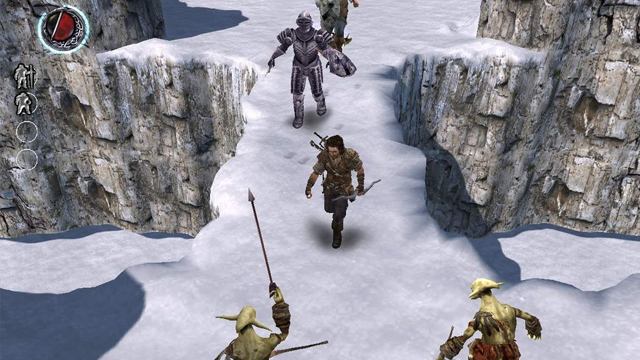
Since Wasteland 2 for PS4 and XOne is in the works, we’re wondering whether a console version of Torment: Tides of Numenera is possible as well?
It’s possible but it’s not in the plan right now. To me it’s not a strategy to be on consoles – it more depends on whether it makes sense. As for Wasteland 2 – I wanted to port the perk system, I wanted to improve the aim shot, I wanted to add more audio... I just knew I wanted to do it. Besides, the new Unity Engine is coming to Xbox One and PlayStation 4 so I can finally get all the things I wanted in the game and I can add those platforms for free just to see if people are going to buy it. It seems like a win-win situation no matter what happens. And I have a lot of people who have a console and want to play Wasteland 2 on it, too. I have also people with PC who want to have the console interface. I am not expecting to sell many copies but I have enough reasons to make ports. As I mentioned, it’s not so big of an effort to convert a game – it’s nothing compared to making it from scratch.
Can you tell us how many people work at inXile now?
About 40.
And is the company recruiting more employees or do you maintain a constant number?
There is always this inherent friction – we want to be careful and keep our heads low but we also want the game to be the best and we can’t help ourselves. The company is as big as I want it to be. I feel comfortable with its size, everyone is fully engaged. We slowly wrap up our number but it’s about where I want it to be.
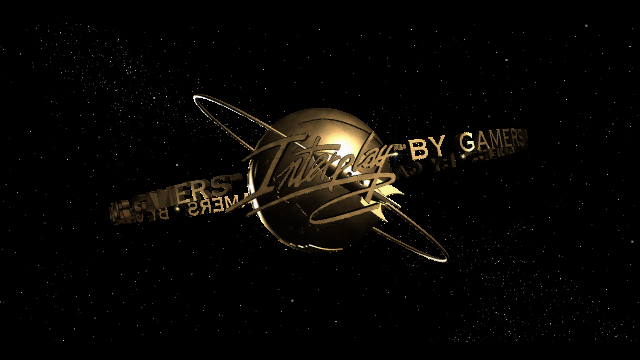
So you’re not trying to recreate the days of Interplay when you had around 600 employees?
I don’t want to do that. I’ve been there, I’ve done that, and I don’t want to do it. I love our business as small as it is right now. We are just big enough to be able to do something that’s really special but we’re not so big that if a game sales, it doesn’t give us some breathing room. Because ultimately you want to have enough sales to give yourself some breathing room so there is no financial pressure on you all the time.
Don’t you regret that Interplay is past its prime?
Not anymore. At the time I did, but I’m in a better place now. Well, there’s a lot of things that I would have done differently and I made my mistakes... but in the end, it was not fun. I hated to be there, it was miserable. This constant string of accountants, lawyers, investors... Nothing fun about it, no time for making games. At the time, if I had had such an opportunity, I would have fired everyone in the company except for Black Isle Studios and kept 40 people – and everything would still go on. I would rebuild Interplay from there. But nobody would allow me to do that.
Don’t you miss looking for talented people with their own projects, like you did with Blizzard, BioWare, Obsidian, and others in the past?
I did enjoy that. Today it’s a different area though. Now people say: “I don’t want a publisher.” But I used to enjoy finding talents, mentoring these people. However, everything happens for a reason. It was miserable as it was, and now I’m back doing what I want. Once you’ve gone through hell, you appreciate when things are good so much more. [laughing]
Do you think Interplay could have survived if in the late ‘90s the industry was the way it is today – with extensive crowdfunding, very strong digital distribution, etc.?
Only if we had transformed the company the way I described. We had too many things going on. It was like everything went wrong at once and it was just a difficult time. But if I had been given the opportunity to bring it down with a small crew and be more tightly focused – yeah, then it would be still doing great today.
One more question about the past – this time about Fallout and its main creator, Tim Cain. Was Fallout created internally in Interplay from the very beginning, or had Tim Cain started developing it externally and was only later invited to Interplay when you recognized him as a talented developer?
Fallout started as something meant to be a follow-up to Wasteland. It was never outside the company. There were some stories in the past that some people were secretly working on it. But I was in charge of the development – there couldn’t be anybody working secretly on any project, I was paying all the bills. There was a small team working on this, composed of Tim Cain, Leonard Boyarsky, Jason D. Anderson and all these guys. There was always that idea: “OK, I can’t get the rights to do Wasteland, I give up, let’s go make something else.”That’s how Fallout was born. The team slowly came together over time... Those guys did a wonderful job, they made it better and even gave it their own personal aspect. The genius of what they did was to take the innocence of the ‘50s and mix it with hyper-violence. That was a brilliant idea and that was all them. But it wasn’t a secret that I didn’t know about or anything like that.
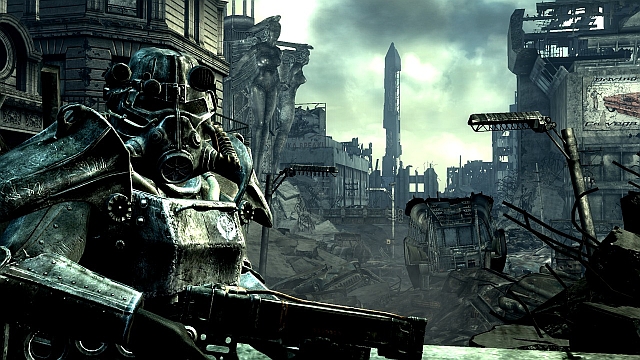
Have you considered bringing Tim Cain in to inXile Entertainment?
He already has his own company. We have actually spoken to him about making Wasteland 2 but he couldn’t or didn’t want to work on it the first time we approached them. We have talked to him later on about maybe doing something but it didn’t happen. However, I hired Jason Anderson. I used to go with him to publishers and say: “Look, here is the godfather of Fallout and Wasteland, I was the exec producer of Fallout and I’m keeping that thing going.” I had Michael Stackpole who was also on Wasteland. All of them have great stories. I brought them with me... and we got nothing from publishers or investors. Later I was doing other things but in my mind that was the big project I thought everybody would love. Then Bethesda came out with Fallout 3 and it sold millions of copies. So I went to publishers again and I said: “Look how big it can be!” but they still responded: “No, no, no interested at all.”
Speaking of which, do you like the direction Bethesda took with Fallout 3 – an open world, first person perspective, and so on?
They did a great job with it. It’s not what the hardcore audience wanted which I totally get but I give them credit. They’ve made a meaningful perk and trait system, they did a great job with the visual style, use of Pip-Boy and music. They’ve captured what Fallout universe should feel like. But it was certainly different than my approach to it.
Fallout is lost to you but you reclaimed the rights to Wasteland and The Bard’s Tale. Is there any chance that you will also reanimate such classic franchises as Stonekeep or Sacrifice?
Anything is possible. However, it would be tricky to make two dungeon-crawlers. But... I don’t know, I have other ideas that I think will surprise people.
Let’s change the subject. Obsidian Entertainment and inXile Entertainment were cooperating while producing Pillars of Eternity and Wasteland 2, right?
We had Chris Avellone helping us with Wasteland 2 primarily. He’s designed the agriculture scenery of Highpool. We also used a lot of his notes for our skill and perk system. For Pillars of Eternity we didn’t influence its system in any way. I gave [to Obsidian] lots of advice regarding Kickstarter from things I have learned but nothing on the project itself. On Torment though, we’ve licensed the Pillars of Eternity technology. Both games share engine, dialogue system and so on; we extended our cooperation here. And not to mention that we are talking informally all the time. Like brothers.
Two Californian companies with a vast experience in creating RPGs...
We know each other since... You know, I gave Feargus [Urquhart, CEO of Obsidian Entertainment] his first job. I gave him a bunch of horrible projects to work on at the beginning, making him learn the hard way... and now he’s a seasoned veteran.
Since you’re using the Pillars of Eternity engine, are we going to see similar interactive cutscenes, as if taken straight from gamebooks, in Torment?
Actually, we are doing that. It’s funny because we’ve came up with this idea independently of Obsidian. We didn’t know they were doing that – or at least I’m pretty sure I didn’t. And actually we are taking it a little bit further than they did in terms of more choices for players. I like this kind of break. There are something like three distinct aspects of Torment. There is just wandering around and talking to people. Then there is combat which is a little more scripted in nature... it isn’t like a lot of trash mobs coming from everywhere. And the third aspect is what you’re talking about – break away and „choose your own adventure moments” which affects a greater narrative. I like these breaks because you are never doing the same thing too much.
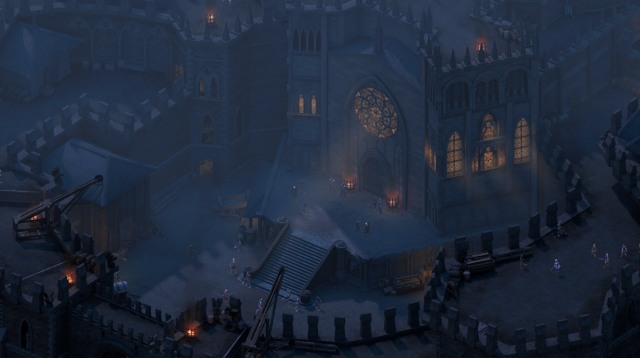
Is there a way to complete the game without killing anyone?
Hmm... I don’t know if you can get through the whole game without killing somebody. I’m not sure.
There is a particular concern about Torment. We haven’t heard much about the game in the past few weeks so I’d like to ask you straight: should we prepare ourselves for another delay of the release of this title?
It’s possible. But it’s more complex. What we have to do right now is to get it in people’s hands as soon as possible so they can play it, experience it and give us feedback. Until that happens it’s hard to know exactly what date it’s going to be released. I don’t think we’re going to get much „changes feedback”, as it was with Wasteland 2. Our focus there were systems, UI etc. and here it is more about conversations. It’s only about so many ways of making choices. So all hands are on deck to make sure we get that on people’s hands and when that happens it will be easier to make comment on the release date. You also have to remember that this game is huge. It has more than 800 thousand words, it’s more than the Bible. And you have to localize it which is a whole other thing. We’re going to make a big jump and get the playable game into players’ hands really soon. That will help set up when exactly it will be made.
Let’s change the perspective and talk about the idea of crowdfunding. At the beginning, Kickstarter was meant to be a kind of start-up for small indie studios. This way, the developers who had no chance to get a publisher or investor for their project could collect money straight from the players if they liked what these studios were planning to do. But then the „big fish” came to Kickstarter and launched projects worth millions of dollars. And when they succeeded in backing one game of such a big scale, they started to use Kickstarter for funding more titles. Now, some people say that such a strategy „kills” smaller developers and their initiatives. Do you agree with these accusations?
No, not at all, and there is a lot of arguments to prove that they are not true. I’ve met with those theories before and I could reply to them in many different ways. To me it’s like saying: „When Iron Man 3 came out, it took all the money away and no one in the industry could get profit”. Let’s look at the last year on Kickstarter – the overall amount of dollars spent was down, some even believed that Kickstarter was dying. But the number of projects was up. And who came with all these projects? The small guys you’re talking about. And the next thing – it was shown that when we have a big new Kickstarter – like Exploding Kittens or something from Tim Schafer – a large percentage of those people looking there end up backing other projects. As a result, we have more money in the ecosystem. So last year there were not many big campaigns and the overall amount of dollars on Kickstarter went down a lot. You are going to see the difference this year, as we have many big projects, and people who will come to back me will also back the other guys. So there is an emotional aspect of this thinking that somehow we are taking away dollars from smaller projects but actual statistics prove it wrong. Beyond that, I am promoting young developers and trying to help them but even if I didn’t, there is still a „halo effect” that comes with it.
There’s also a different accusation floating around and I’d like to hear your take on it. When a well-known developer has one project funded on Kickstarter and later comes back with another, some players say that these developers are looking for „easy money”, while they should fund their games with the money earned on their previous game.
Well, you’re assuming that the money which were made from the prior game are enough to fund the entire next project. I think people don’t really understand how it works. Let’s say you’ve raised 400 thousand dollars, you’ve said: “Let’s make a game”, and then you’ve made a million dollars and you hear: “They’ve made a million dollars!”. Actually, with that I can pay my taxes and pay for six weeks of work. Six weeks... while it takes a year and a half to make a game. It’s not very exciting, right? It’s not like people are going to Kickstarter and they make 50 million dollars. It doesn’t work that way. But even if it was the case... While creating a game on your own, you can go to Kickstarter, or wait for Early Access, or wait for release, or wait for sales, or wait for bundle. It’s up to you, you can skip any of these stages. But there is no negative aspect of just offering people something. You know, we have stunning hand-made boxes for The Bard’s Tale IV for 500 bucks. They’re beautiful. But you don’t have to buy them to make sure you’ll receive the game.
Still, there are also developers who announce a new Kickstarter campaign even before they release their previously funded game, like Obsidian Entertainment did with the rumored Pillars of Eternity 2, and Slightly Mad Studios with Project CARS 2.
We did the same thing. We announced Wasteland 2 and meanwhile we revealed Torment: Tides of Numenera. People said: “How can you do that, you haven’t delivered the first one yet.” I’ve been delivering games for 30 years so we get it, and we’ll deliver Wasteland 2. And now we are doing it again. The thing is, as I said before – you don’t want to fire everyone when you are done. I could just sit and wait until Torment is done but what possibilities would I have without money coming in? I need to have the next project ready to go before I finish the first one.
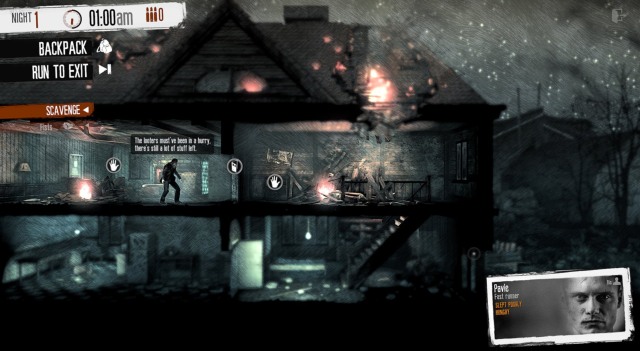
We can say that today there are two major schools of creating RPGs – one with an open world, third- or even first-person perspective, and a dynamic combat system, and the other represented by old-school isometric RPGs such as Torment or Wasteland 2. Do you think this old-new „school” of making role-playing games is just a temporary trend or will it last longer?
Well, we don’t need multimillion sales to survive on these games. Hundreds of thousands of pieces is OK. Both Wasteland 2 and Pillars of Eternity became hits on Steam and players gave them very high marks. So I think we have fundamentally created an experience which people liked. As long as RPGs are really, purely fun and working on the entertainment level, people will continue to buy them.
